- | 9:00 am
This is what Gen Z in the Middle East expect from their bosses and workplace
Fast Company Middle East asked more than 100 people—mostly members of Gen Z about their expectations as they enter the workforce.
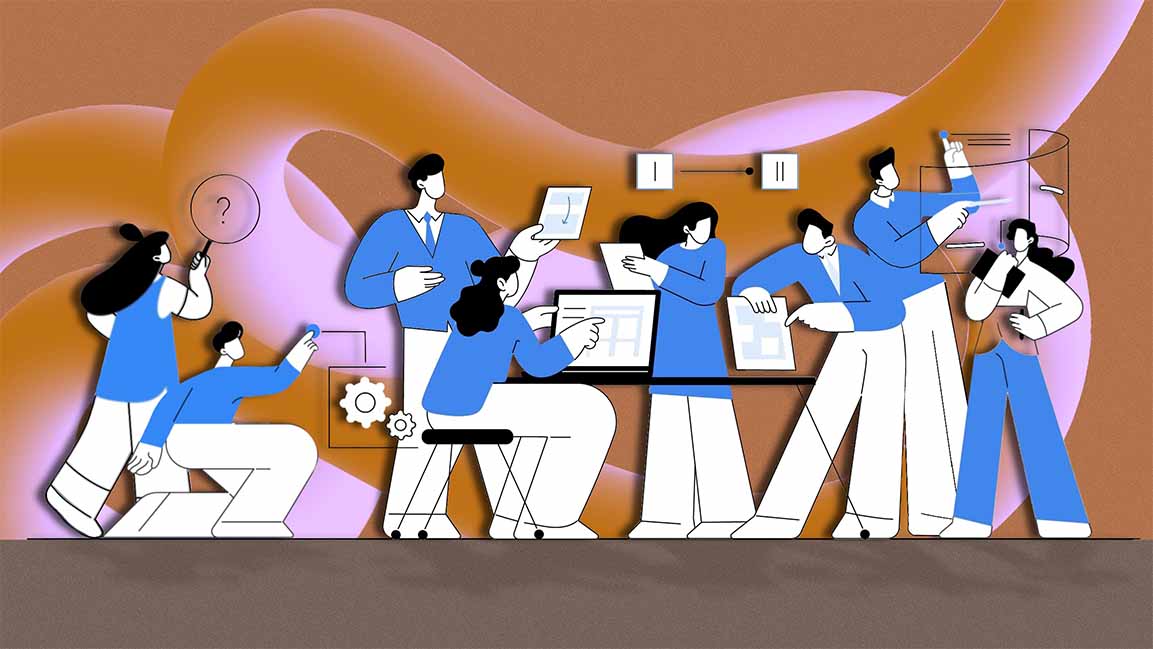
OVERVIEW
Self-confidence and determination are common traits for Gen Z — often defined as people born between 1997-2012 — who have begun entering the workforce. As one of the largest generations — about 16% of the Middle East’s population — they have tremendous potential to transform workplaces and the industries they’re entering.
Gen Z wants to do meaningful work with a sense of autonomy, flexibility and work-life balance and work with people who work collaboratively. Gen Z also reports new interest in jobs that contribute to one’s stability, both mental and physical.
They are less afraid to ask for what everyone else wants and needs, which sometimes is stereotyped at work as entitled.
According to several companies, Gen Z is making an impact on the way they conduct their jobs and on their office culture.
Fast Company Middle East asked more than 100 people—mostly members of Gen Z about their expectations and to companies on how to lead this generation as they enter the workforce.
As the workplace in the Middle East is undergoing a seismic shift as this generation enters the workforce, We’ve curated concrete ideas and frameworks for managing, retaining, leading, and understanding them. Future-thinking organizations will see this and leverage the potential of Gen Z.
1. How to attract Gen Z workers
2. Understanding Gen Z’s mental health
3. How Gen Z wants to be led
4. Best practices for managing Gen Z
5. What does Gen Z value
6. What can we learn from Gen Z
7. Job vs. entrepreneurship
INTRODUCTION
Values-driven, socially conscious, and unafraid, Gen Z is prodding companies to put a premium on transparency, flexibility, and authenticity. These eager young adults, who grew up during the Great Recession and were college freshers during the pandemic lockdown, are demanding a different kind of work experience with technology at the center.
Continuous political and economic upheavals have molded Gen Z. For them, the global uncertainty is emblematic of some of the challenges they face as they enter the workforce. Institutions are not what they used to be, and mentorship and opportunity cannot be taken for granted.
“Entering the workforce for the first time is, as has always been, a daunting experience. Gen Z professionals are also navigating global economic uncertainty trickling into the job market during this period. They are concerned about their job security,” says Ali Matar, EMEA Growth Markets Leader and Head of LinkedIn MENA.
However, they have more opportunities. Companies often compete for them instead of the other way around, and that, combined with the exigencies of the time they were born into, lends a certain empowerment. During the job application process, Gen Z has the digital tools to research companies on a level previous generations couldn’t.
Learning about Gen Z and being able to relate to them in any circumstance starts with thinking deeply about this generation. The first step is identifying what’s distinct rather than universal.
“Their open-mindedness to new ideas and willingness to embrace change has a transformative effect on teams,” says Maria Al Khaja, KPMG Youth Council Chair.
Fast Company Middle East’s goal in this special report is to go beyond the basics. The rise of Gen Z presents a tremendous opportunity for companies to create an employee experience that integrates technology and innovation into everything they do.
Taking inspiration from this new generation—and implementing structures that cater to their perspectives and preferences—will lead to higher retention and significant value to the bottom line.
BEST WAY TO LEAD GEN Z
Although Gen Z has only been in the workplace for a few years, work is changing in response to their new demands.
According to several companies, Gen Z is making an impact on the way they conduct their jobs and on their office culture.
They agree that it is crucial to build trust and drive strategies to retain them and ultimately help them give back to the organization and excel at their work. The most effective way to bring out the best in Gen Z is to provide them with meaningful work, embrace technology, and support work-life balance.
They also value an environment where they can be themselves. They would want an open, transparent culture that gives them ample opportunities to grow and expand in their career.
“Gen Z is part of the universal shift among employees, coming out of the global pandemic – to rethink work-life balance and re-evaluate workplace values,” says Matar. “The good news is that there is an opportunity now to connect with the younger generation.”
Many companies Fast Company Middle East spoke to say fostering the best qualities in Gen Z and leading them effectively involves a combination of strategic initiatives and tailored approaches. By orchestrating team-building exercises, organizing regular town hall sessions, and sharing updates, we can create a cohesive environment that brings out the best in teams.
“Capitalizing on this generation’s potential also comes through leadership opportunities. Entrusting them with decision-making roles allows fresh perspectives to thrive and new solutions to emerge within the corporate framework,” says Al Khaja.
“Furthermore, integrating their strengths with established practices can yield comprehensive results. Innovation is essential but must also be tempered by an awareness of balancing new approaches with proven methods.”
“We maintain open communication, ensuring that Gen Z employees grasp their indispensable role within our banking ecosystem, keeping them abreast of our progress, hurdles, and triumphs,” says Hamda Al Shamali, Chief People and Intellectual Capital Officer at Mashreq.
“Early in their careers, they are presented with opportunities that set them on an accelerated growth path, aligning with their innate desire to make a meaningful impact swiftly.”
Since the generation has grown up in an instant gratification society, where everything is easily attainable, they are often hard-wired to feel more engaged if the workplace provides that same instant gratification level.
“The way to harness this healthily is to provide quick feedback, reward small wins, and give them a certain level of attention and a sense of purpose. While that requires some time investment, the benefit is that, like someone playing a video game or experimenting with a new platform, they are absolutely flying once they click into place. You can step back and let them flourish,” says Jamal Almawed, Founder & Managing Director, Gambit Communications.
Explaining why she accepted her current job, Nayra Ismail, 25, a content writer, says, “The company I work for now is a pretty reputable name in the media industry, the work environment is comfortable, and the people who work with me are very similar in values, so I figured I’d be at my most comfortable here.”
BRINGING UNIQUE QUALITIES TO WORKPLACE

Illustration by Anvita Gupta/Fast Company Middle East
Gen Z infuses workplaces with a fresh perspective we can all learn from. As digital natives, they effortlessly navigate the digital landscape, bringing innovative solutions to the table. “This generation embraces flexibility and has the ability to adapt to dynamic settings and on-the-go work demands,” says Al Khaja.
“They are able to display fearlessness in owning up to mistakes and taking constructive criticism, which is in line with a culture of continuous improvement.”
All agree that Gen Z has an entrepreneurial mindset, bringing fresh perspectives and innovative approaches to problems that influence the work culture.
“Their ability to multi-task with constant exposure to multiple screens enhances productivity and efficiency. They are strong in their social awareness and activism, inspiring organizations to foster the culture of diversity, inclusion & sustainability,” says Veena Satish, Vice President, People & Culture, MoEngage.
Gen Z, as the first digital natives, brings an intrinsic understanding of technology and the digital realm. “These young professionals look beyond traditional professional paradigms, seeking workplaces that align with their values and emphasize societal impact. Their drive for genuine change and digital fluency makes them an indispensable asset for the future,” says Al Shamali.
“These digital natives possess an innate understanding of digital trends, an outcome of growing up during the rise of streaming platforms. Their digital-first mindset transcends mere technology; it embodies a comprehensive approach to problem-solving and innovation,” says Akshat Harbola, Managing Director, Spotify Middle East, North Africa and South Asia.
Many say they are driven by purpose and are curious.
“This generation reveres diversity and strives for a culture wherein everyone feels valued and celebrated. Breaking down barriers and fostering unity lies at the heart of their collective mission, and seeking alliances with social and environmental purposes is also key,” says Sophie Simpson, Managing Director and Founder of Atteline.
Since they are the first generation that has lived all their formative years in the age of internet proliferation and social media, using these technologies is second nature.
“That makes them a fantastic resource in the marcomms industry because you will often find that their day-to-day online and social activity gives you insights into how to reach that target audience, catch new trends, and learn about new platforms,” says Almawed.
What strikes companies most is their blend of optimism and realism, characteristics honed by navigating an age marked by swift technological evolution and economic uncertainties. “For this generation, authenticity is more than a trending term; it’s a foundational expectation. This demand for genuineness challenges our industry to elevate our content delivery, ensuring we truly resonate with our audiences and creators,” says Harbola.
They aren’t afraid to speak their mind, says Anuradha Challu, Chief People and Culture Officer at Property Finder. “As a technology-first organization, this is of great value to us as we continue to build a youth-friendly workplace and partner with our Gen Z team members to achieve great milestones together.”
Often called the “connected generation,” Gen Zs set trends in various fields. They are intelligent, connected, and well-versed in the latest developments.
“This digital-native mindset and tech-savvy nature complement our disruptive approach. Their ability to seamlessly integrate technology into their daily routines keeps us enhancing our product development and fosters a culture of innovation and adaptability. We can all learn from Gen Z’s ability to leverage technology to create user-friendly, sustainable, and cost-effective solutions that revolutionize the mobility landscape,” says Alaa El Huni, Chief Business Officer, CAFU.
THEY VALUE FLEXIBILITY AND WORK-LIFE BALANCE
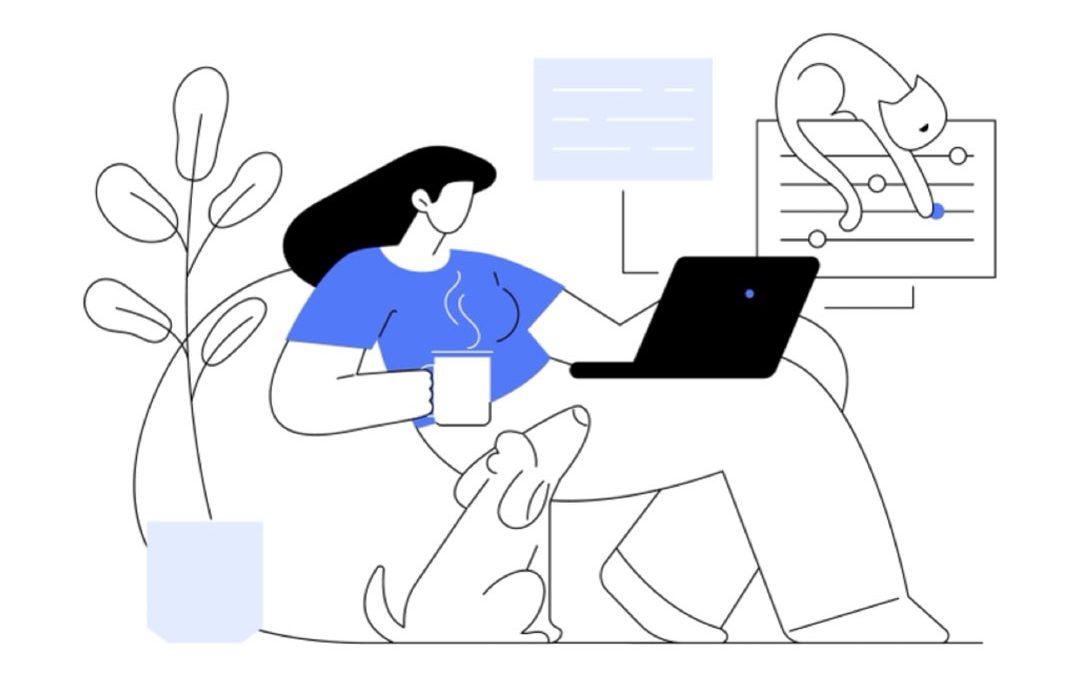
Illustration by Anvita Gupta/Fast Company Middle East
Young workers are also fiercely protective of their work-life balance; it is an important contributor to good mental health. But it isn’t just Gen Z. Increasingly, they expect employers to be mindful of their emotional well-being and access to mental health support.
“Their strong desire for flexibility and work-life balance reminds us of the importance of harmonizing personal and professional responsibilities. By embracing these qualities, organizations can create a more inclusive, technologically advanced, and socially conscious workplace that benefits individuals across all generations,” says Satish.
Companies and hiring managers say we can all foster a happy, healthy, productive, and engaged workforce if we understand their preferred modes of communication and what they value.
“It entails honing our ability to establish meaningful connections with young individuals, create a purpose-driven workplace, and unlock their potential and contributions,” says Simpson.
Two major factors that have affected the development of interpersonal skills among Gen Z – growing up in the age of social media, where face-to-face social skills are not utilized, and the pandemic forcing them into remote learning or remote work right at the start of their career.
“The combined impact of these factors is that they are not equipped to deal with conflict, change, and inter-office politics the same way previous generations were and can develop anxiety about work quite quickly,” says Almawed.
“It is essential that employers help ease them into this new work environment by providing them with mentorship, exercising a certain level of empathy, and keeping them engaged by varying tasks. The payoff is that they can be a real force of nature once they settle in,” adds Almawed.
While they are more diverse and socially committed than past generations, they also report higher stress levels and mental illness.
GenZ is a generation that has expressed a high level of emotional distress and has opened doors to address mental health concerns openly.
“While offering health insurance schemes to cover mental health treatments is key and can be covered, approaches to personal interactions are also key,” says Sarah Curtis, Co-Founder of POP Communications.
Whether offering “mental health day” each month, flexible and remote working, or setting up a network encouraging team members to share their mental health struggles, these are all options Gen-Z appreciates but also expects,” adds Curtis.
Encouraging dialogue around mental health and sharing personal experiences allows a company to establish a workplace where silence and stigma have no place.
“Companies aiming to attract Gen Z talents must intertwine policies that actively promote mental well-being with an organizational culture that empathetically upholds these values,” says Harbola.
Gen Z’s focus on mental health and wellness is a generational hallmark—one that employers would do well to heed.
For Salma Elgerby, a 25-year-old English teacher, establishing a work-life balance is not simple. “My best attempt at establishing a healthy work-life balance is being selfish with my time outside of work.
Having my hobbies and reinforcing the parts of my identity that don’t center around being a teacher prevents me from being swallowed up by my title.”
Echoing Elgerby, 25-year-old Lama Kadri, a graphic designer, says boundaries and communication help when setting a work-life balance. “It’s also necessary to set personal and professional priorities straight; having personal time is vital for you to excel at work.”
FEEDBACK AND DEVELOPMENT OPPORTUNITIES
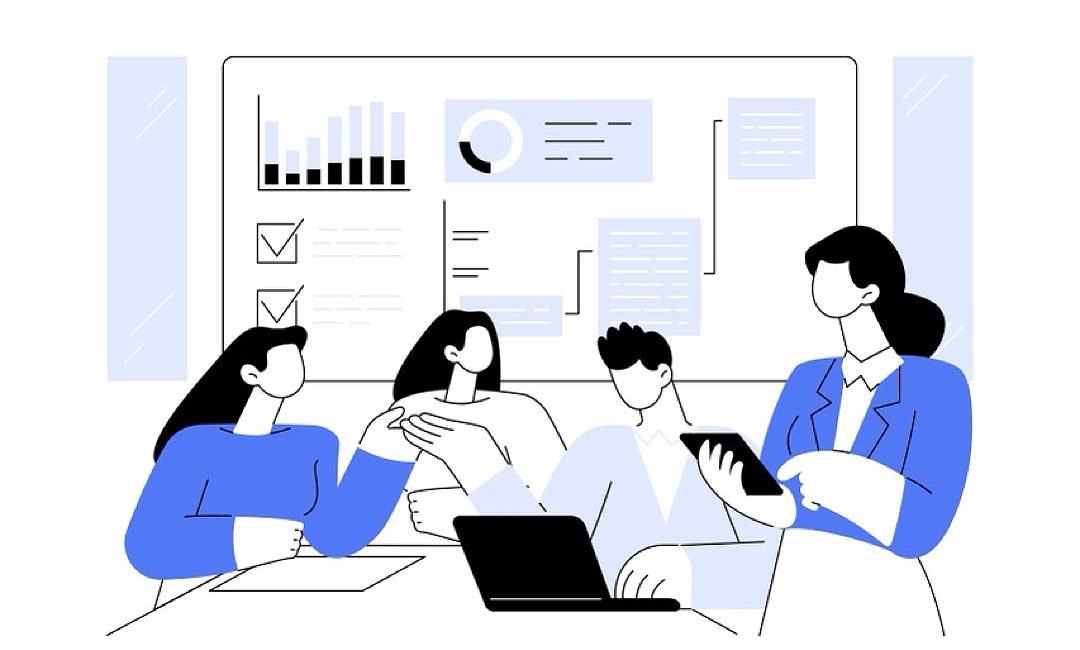
Illustration by Anvita Gupta/Fast Company Middle East
Gen Z’s need for meaningful work requires companies to be more transparent about the purpose of what they’re asking their young employees to do, as well as providing clear pathways to advancement.
Gen Z values the importance of guidance and support from experienced professionals to advance in their careers, and they have a strong desire to continuously upskill.
After compensation, they highly value flexibility, upskilling, and career advancement opportunities, and it’s more important than ever that companies demonstrate their approach to these things as part of their recruitment efforts.
Gen Z, in particular, values career development. “In the UAE, Gen Z is 48% more likely to prioritize seeking mentorship in the workplace than the previous generation, and 39% more likely to seek opportunities to develop new skills than Gen X. For employers, this means it is crucial to provide mentorship programs to engage and retain Gen Z as well as training opportunities that reflect the skills in demand,” says Matar.
Feedback plays a vital role in engaging and motivating Gen Z employees. “They value constructive inputs that help them improve their performance. Feedback aligned with their expectations can contribute to their professional growth and overall job satisfaction. They appreciate leaders who offer ongoing guidance and support and opportunities for growth and learning. Creating a culture where the cadence of feedback matches the fluctuation of the marketplace is a must to keep Gen Z employees informed, engaged, and performing well,” says Satish.
Besides career advancements, young employees feel their manager should provide and equip them with the resources to improve their career prospects. Workplace recognition and support help fuel their motivation.
“When management rolls up their sleeves, works collectively, and takes time to guide on best practices, such actions are also widely appreciated,” says Curtis.
Their distinctiveness also lies in their approach to teamwork. While independent in thought, they value collaboration, often melding diverse opinions to polish and uplift their ideas. “This generation masterfully marries risk-taking with a calculated approach, harmonizing their vibrant optimism with grounded pragmatism,” says Harbola.
Building an environment that encourages open discussions, collaborative endeavors, and growth opportunities is important to nurture Gen Z in the workplace. “This means ensuring we focus on transparency to include accessibility and communication across all levels of management. Another core requirement for the Gen Z workforce is the effectiveness of continuous feedback through sustained mentorship and engagement. We continue to provide a wide range of open sessions that encourage skill development and enhanced productivity for a diverse younger generation,” says Challu.
Providing hands-on experiences, mentorship, and learning opportunities allows the younger generation to thrive in the workplace. “By offering them opportunities to contribute to meaningful projects and recognizing their contributions, we want to motivate and lead them to excellence, harnessing their innovative and entrepreneurial spirit,” adds El Huni.
HOW TO RETAIN GEN Z EMPLOYEES
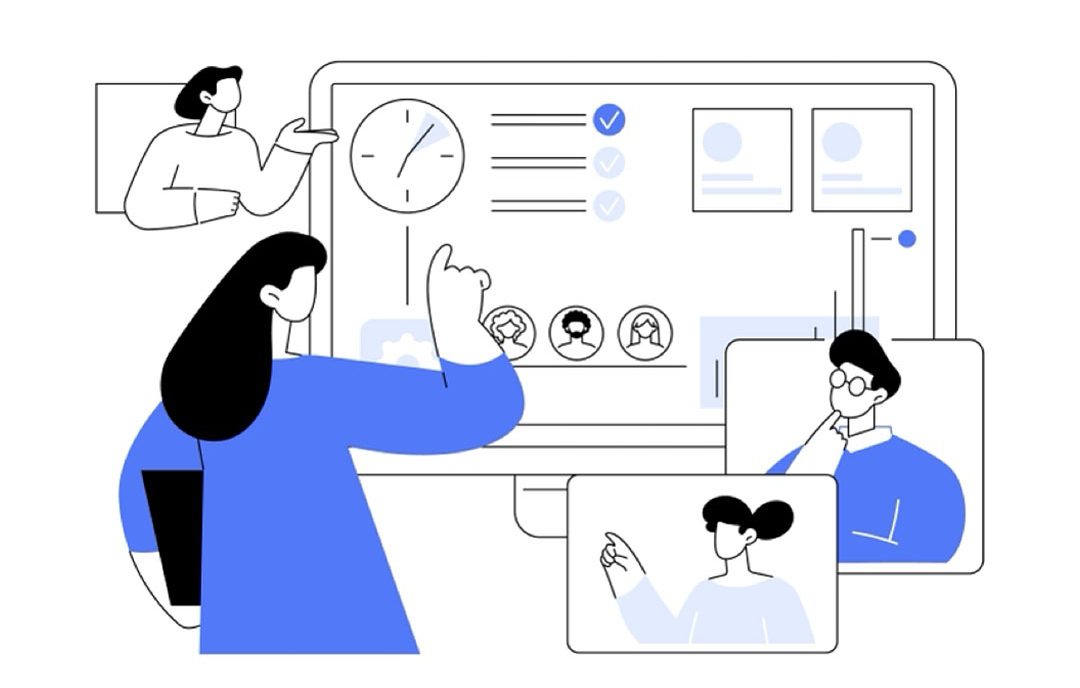
Illustration by Anvita Gupta/Fast Company Middle East
Ask any company, and they’ll tell you retention is now more important than recruitment. Recruiting talents who make a good cultural fit is difficult. It can also be expensive and time-consuming.
Undoubtedly, the impact of the pandemic and the Great Resignation of the region is unprecedented. Thousands of workers quit their jobs, and at the same time, job openings surged to an all-time high. So, how can companies create work environments that attract and retain this talented, creative generation?
What made a job “bad” in the eyes of Gen Z? For starters, they dislike long hours, low pay, and too much work pressure.
What Zs expect from potential employers is much different from what the previous generation expected.
Gen Zs want paid time off to care for their mental health. They also want mental health benefits like therapy and employers to emphasize a better work-life balance.
To attract and retain Gen Z talent, employers must provide access to information where, when, and how employees want it. As they enter the workforce, Gen Z is looking for companies that truly appreciate and value them.
Additionally, career growth is important for them. “It’s important to have a vision of how my career will be, and being around people who share the same sentiment helps me get there,” says Kadri.
Despite all the ups and downs, Gen Z remains focused on finding a job that aligns with their values and where they would feel welcome and supported. In a world where everyone is hyper-connected, young employees feel that their workplace relationship is a big part of their job and the environment they’re in.
“Feeling appreciated and valued plays a big role in how long I stay at an establishment,” says Elgerby.
“A strong team and as long as I am challenged healthily always to be learning something that allows me to advance in my career, I wouldn’t leave,” says Dania Darra, a 25-year-old architect.
If companies want Zs in their workforce, they must embrace the cultural shift around career growth, flexibility, and how people are treated at work.
At the end of the day, Zs want companies to take the time to understand what their generation prioritizes and then craft workplaces and roles that deliver on those expectations.
“I want a workplace where employees are pushed to greater heights, where employees’ concerns are taken seriously. Being creative can be challenging because there is always room for experimentation and something we want to try,” says Nabeeha Sajjad, a 22-year-old content creator.
“A healthy work environment where I can grow in my career path with my manager’s support. Having some flexibility is very important to help boost my productivity,” says 25-year-old Hussein Rammah, a customer service representative.
Gen Zs are acutely aware that what they’re asking for benefits everyone in the workforce, not just their generation, and they’re willing to demand the changes that lead to a better work environment for all.
They are opting into jobs that deliver a new kind of workplace culture. If companies do that—offer this generation what it wants and needs—they will be able to attract and retain Zs.
“Several factors contribute to my long-term commitment to a company. Firstly, opportunities for professional development and upward mobility within the organization would help me achieve my career growth goals.
In addition, an innovative work culture that encourages staying ahead of the curve in emerging technologies is crucial,” says 25-year-old Hisham Abdelqader, XR Lead at PwC Middle East.
Employees who feel comfortable at work feel more loyal toward their employers and colleagues, which translates to a desire to stay longer.
Mariam Solika, 24, a communications specialist, says the three things she deeply cares about at the workplace are a “healthy work environment, working for a valuable cause, and maintaining my well-being.”
For Omar Nahla, 26, a copy editor, proper compensation, support from management, a good work environment, and relationships with team members are important.
Some key takeaways:
– Value their creative ideas
– Offer meaningful mentorship
– Keep hours reasonable
– Avoid toxic work environments
– Be flexible
WHAT WORKFORCE DIVERSITY MEANS FOR GEN Z

Illustration by Anvita Gupta/Fast Company Middle East
Diversity matters for Gen Z. They are set to be the most populous and diverse generation in history and have the ability to have a massive impact on the world of work. Several people interviewed for this story emphasized the importance of working for companies committed to diversity and inclusion when deciding where to work.
Elgerby says, “The importance of diversity cannot be overstated in my work. It matters for students to learn from someone who represents them. For example, one of my 9th graders, who happens to be one of the handful of girls at my school who wears a hijab, when asked to recall a happy memory from our class, said, ‘I loved seeing someone like me, wearing a hijab. I was stressed out initially, and it wasn’t for nothing; everyone was saying hurtful words. When I saw my English teacher wearing a hijab, I felt at home.”
Working in a firm that recognizes that a diverse workforce is not just an ethical imperative but also a business necessity aligns with my Gen Z’s values, says Abdelqader. “With goals ensuring that 50% of the graduates hired are female and 80% are Arabic-speaking, my workspace is strongly committed to inclusion and diversity.”
For many companies in the region, there is still a long way to go in integrating DEI as a crucial aspect of working life. But it is crucial for attracting and retaining Gen-Z, who has the potential to shape the future of work.
Desiree Arland, CEO of Empower Sales, who inherited the family business, says, “We value hiring industry professionals from various backgrounds, cultures, genders, ages, and walks of life to facilitate a global blended approach.”
JOB VS ENTREPRENEURSHIP: WHAT’S GEN Z’S CHOICE?
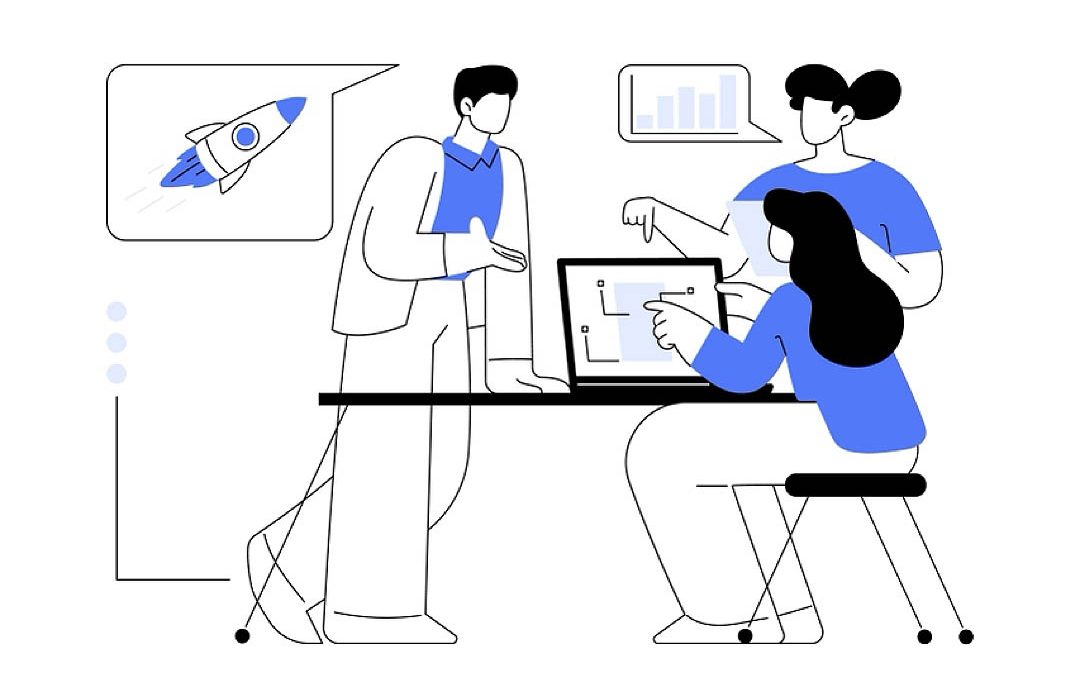
Illustration by Anvita Gupta/Fast Company Middle East
Gen Z has strong entrepreneurial impulse and is most likely to have a side hustle. The people we spoke to Gen Z want to earn additional income, including turning a passion into a source of income, to better the quality of life, or personal fulfillment. But they consider a job at the beginning to shape them to be one instead of a springboard toward achieving that ultimate goal.
“Control of the direction of my professional life allows me to channel my true passions into something productive and allow my life’s work to be successful and something I enjoy,” says Arland.
“Understanding how a workplace operates is essential for running an enterprise. In a world where businesses are being launched rapidly, knowledge and the perseverance to see it through would set me apart.
It’s my dream to launch my production company,” says Sajjad.
Abdelqader also considers entrepreneurship the ultimate career objective. “It allows you to align your vision directly with your professional path. However, thriving in a job cultivating entrepreneurial qualities—like forward-thinking, innovative problem-solving, and non-hierarchical leadership—can serve as an invaluable springboard toward achieving that ultimate goal.”
At the same time, some prefer having a job; they consider it risk-free, giving them enough time to pursue their other interests.
“My job allows me to interact with people of different ages, professions, skill levels, and backgrounds. It allows me to grow and hone my skills with a security net. It’s a less risky business,” says graphic designer Kadri.
English teacher Elgerby agrees. She says, “I find freedom in doing my job and leaving the rest for someone else to worry about.”
Gen Z doesn’t buy into the overworked culture of the Middle East. This generation cannot be motivated to give it their all.
“One must always start with a job to understand all aspects of a business and develop themselves at every level. After the experience, then possibly consider entrepreneurship,” adds Darra.
Generation Z represents a sizable addition to the workforce, and for employers, it’s a great opportunity to recruit young talent who are up to speed with the latest technology. Ensure your business prioritizes Gen Z values if you want them to stick around. Mental safety is a major priority, and they know the potential consequences of overwork and burnout. They are making very different choices than past generations when it comes to work-life balance.







































